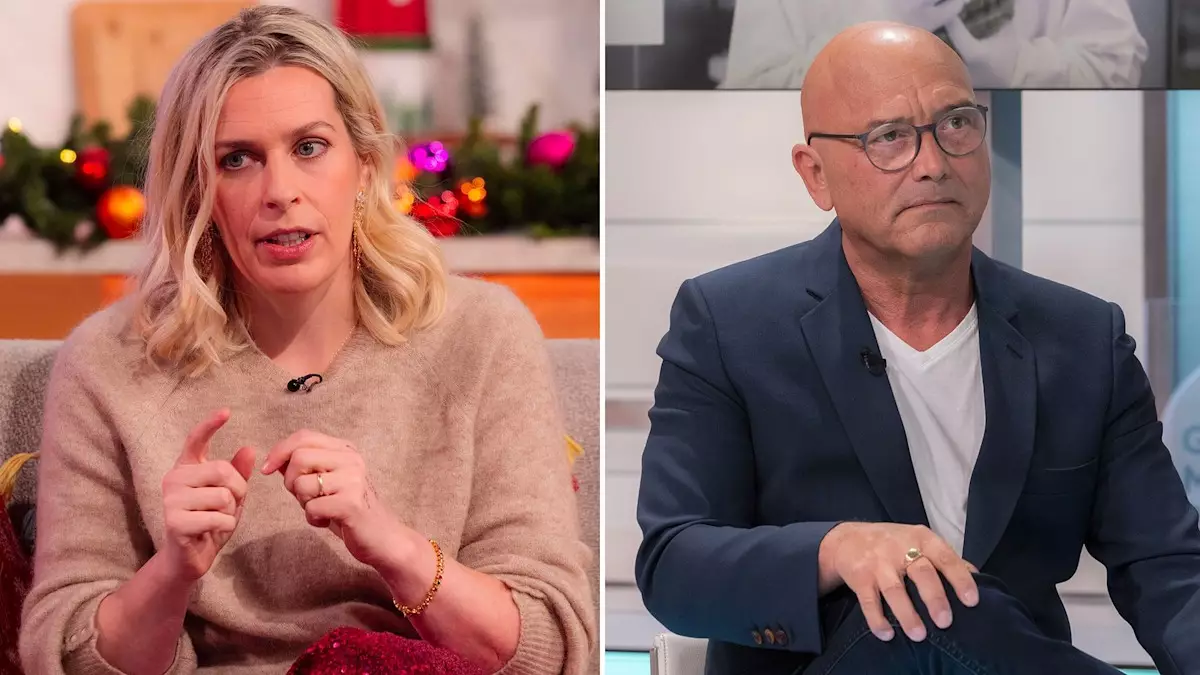In a recent episode of Lorraine, comedian Sara Pascoe found herself at the center of a heated dialogue regarding the controversial figure of Gregg Wallace. Her remarks on being a “middle-aged woman of a certain class” resonated with the gravity of accusations leveled against Wallace, who has faced multiple complaints over his alleged inappropriate behavior. While the light-hearted tone of a morning show would typically lean toward entertainment, Pascoe’s shift towards addressing serious allegations provides insight into how public figures navigate their roles in light of societal expectations and missteps.
A significant facet of this unfolding drama is the number of complaints—13 from various individuals—which prompted an official investigation by Banijay UK, the production company behind MasterChef. The allegations span almost two decades, a duration that highlights systemic issues within television production environments. As the narrative unfolds, it raises critical questions about workplace culture and the necessity for accountability, particularly for those in prominent roles.
Wallace’s response to the allegations has sparked additional outrage. In his video message, he notably dismisses the complaints as stemming from a specific societal demographic— “middle-class women of a certain age.” This framing has drawn condemnation for being not only dismissive but also misogynistic, further complicating his public image. Critics argue that such comments trivialize the experiences of those who come forward with accusations, thereby undermining the very essence of the dialogues surrounding consent and respect in the workplace.
Sara Pascoe’s assertion that she and Lorraine could be “powerful enemies” underscores a larger theme regarding women banding together in the face of pervasive misogyny. Their collective rejection of Wallace’s narrative is emblematic of a broader movement advocating for women’s voices and experiences to be taken seriously. As comedians and entertainers, both Pascoe and Kelly contribute to this discussion, balancing humor with pressing social concerns.
Following the backlash from his video, Wallace issued a public apology via Instagram. His admission of stress and feeling “under siege” humanizes his experience, yet it also reveals a crucial flaw in how public figures often react under scrutiny—whether through denial or misplaced defensiveness. The weight of his apology carries ramifications for how society perceives accountability and growth amongst those in the limelight.
The intersection of comedy, accountability, and gender dynamics showcased in this unfolding drama invites deeper examination of how personalities in the public eye navigate their responsibilities. As Sara Pascoe and Lorraine Kelly illustrate through their exchange, the courage to speak out and challenge problematic narratives plays a pivotal role in shaping the discourse around misconduct. Both laughter and serious conversation are essential tools in dismantling the complex layers of societal issues, ultimately pushing for a culture that prioritizes respect and accountability over defensiveness.

